Sweet Adeline

Brief Synopsis
Cast & Crew
Mervyn Le Roy
Irene Dunne
Donald Woods
Hugh Herbert
Ned Sparks
Joseph Cawthorn
Film Details
Technical Specs

Synopsis
Sid Barnett, a young composer, is in love with Adeline Schmidt, the daughter of a beer garden owner, but her father Oscar dislikes him, preferring the Spanish-American War hero, Major Day. Because Schmidt is completely opposed to show business, Adeline's sister Nellie runs away to New York, hoping to pursue a career as an actress. Adeline comes after her and when Sid sees Adeline, he insists that she is the only one who can sing the songs in his new operetta. After she demonstrates this to the director, he agrees to replace Spanish actress Elysia. Because sponsor Rupert Rockingham will only finance the play if Elysia stars, Day steps in and offers to back the play with Adeline as the star. During rehearsals, Adeline and Sid quarrel and she starts spending more time with Day. Meanwhile, Rockingham has discovered that Elysia is a spy. He plans to keep her identity secret because of his love for her, but Nellie convinces him that she is really the right woman for him. When Day proposes that Adeline become his mistress in return for his support of the play, she is insulted by his attitude and announces that she will not go on stage after all. Sid pleads with her not to ruin his first operetta and she finally agrees, making Elysia very jealous. During the performance, Elysia injures Adeline seriously and the play closes. Adeline and Sid are still not speaking until during another rehearsal, director Dan Herzig teases them into kissing each other.

Director

Mervyn Le Roy
Cast
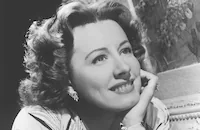
Irene Dunne

Donald Woods
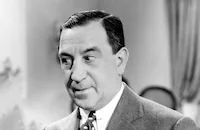
Hugh Herbert

Ned Sparks

Joseph Cawthorn
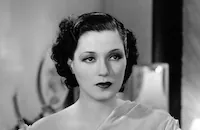
Winifred Shaw

Louis Calhern
Nydia Westman
Dorothy Dare
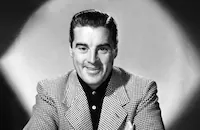
Phil Regan
Don Alvarado
Jack Mulhall
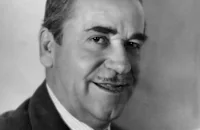
Noah Beery Sr.
Harry Tyler
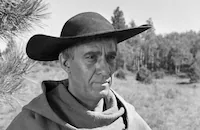
Martin Garralaga

Emmett Vogan
Howard Dickinson
Eddie Shubert
Nick Copeland
Ferdinand Munier

William V. Mong
Johnny Eppelite
Joseph Bernard
Charles Heckman
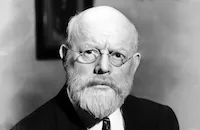
Howard Mitchell
Landers Stevens
William Arnold
David Newell
Evelyn Wynans
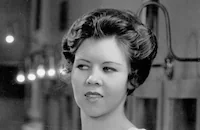
Mary Treen
Juanita Conners

Gertrude Astor
Crew
Edward Chodorov
Bobby Connolly
Ralph Dawson
Eddie Edwards
John Ellis
Frank Evans
Frank Flanagan
Leo F. Forbstein
Dave Forrest
Irwin S. Gelsey
Al Green
Ida Greenfield
Robert Haas
Oscar Hammerstein Ii
Ray Heindorf
Gordon Hollingshead
Jerome Kern
Smoke Kring
Harold Mclernon
Jean Mcnaughton
Emily Moore
Harold Noyes
Orry-kelly
Sol Polito
John Prettyman

Videos
Movie Clip


Film Details
Technical Specs

Articles
Sweet Adeline
Dunne had made her film debut in 1930 in a Rodgers and Hart musical-comedy called Leathernecking. But after that, she found herself cast mostly in dramatic roles such as Back Street (1932), based on a Fannie Hurst story, and The Age of Innocence (1934), an Edith Wharton romance. Sweet Adeline was Dunne's first chance after sixteen films to return to her musical origins.
She is joined in the film by Joseph Cawthorn, who plays her father, the owner of a beer garden. A career character actor, Cawthorn is likely best remembered for parts such as the missionary Dr. Bruner in White Zombie (1932) and plantation owner Cornelius Van Horn in Wheeler and Woolsey's Dixiana (1930). Dunne faces a choice between two love interests in Sweet Adeline. The first, a young composer named Sid, is played by Donald Woods. The second suitor, a war hero who is preferred by Addie's father, is played by Louis Calhern, who broke into films in the 1920s. He would achieve his greatest career success late in the 1950s, when he was Oscar® nominated for the role of Oliver Wendell Holmes in The Magnificent Yankee (1950). The decade would also find Calhern appearing as Buffalo Bill in Annie Get Your Gun (1950) and in the title role in the 1953 version of Julius Caesar starring Marlon Brando.
Wini Shaw also appears in the cast of Sweet Adeline in a role created especially for the film adaptation. Shaw plays the "villain" of the story, a Spanish-American spy. The entire spy storyline was added for the film; in the stage version, Addie's rival had been a burlesque queen. But the plot wasn't the only change made to Sweet Adeline in its journey to the screen. Kern and Hammerstein's libretto was also significantly changed for the film, and only two of the original songs, "Here Am I" and "Why Was I Born," were retained. The reviewer for Variety lamented the changes to Sweet Adeline, pointing out that "except for the fact that the girl leaves her father's Hoboken beer garden to go on the stage against parental objections, Jerome Kern and Oscar Hammerstein, who wrote the original, wouldn't know their Addie anymore."
Thankfully, Dunne fared better in the role of Addie. The New York Times applauded Sweet Adeline for allowing "the amiable filmgoer to hear Irene Dunne adjusting her cool and pleasant soprano to [the] memorable romantic songs." And Variety noted her "fine voice" and called her "comely as Adeline." Dunne's return to the musical in Sweet Adeline was, in fact, so well received that she appeared in another one the following year -- Roberta (1935) alongside Fred Astaire and Ginger Rogers. And, in 1936, Dunne's career would come full circle she was cast in the second screen version of Kern and Hammerstein's Show Boat.
Producer: Edward Chodorov
Director: Mervyn LeRoy
Screenplay: Erwin S. Gelsey, Jerome Kern (play), Oscar Hammerstein (play)
Cinematography: Sol Polito
Film Editing: Ralph Dawson, Harold McLernon
Art Direction: Robert Haas
Music: Jerome Kern, Oscar Hammerstein
Cast: Irene Dunne (Adeline Schmidt), Donald Woods (Sid Barnett), Hugh Herbert (Rupert Rockingham), Ned Sparks (Dan Herzig), Joseph Cawthorn (Oscar Schmidt), Wini Shaw (Elysia).
BW-87m.
by Stephanie Thames

Sweet Adeline
Quotes
Trivia
Like many film musicals adapted from stage successes of the time, the plot line and characters of "Sweet Adeline" bear only a faint resemblance to the ones in the original Broadway show.
Notes
Film Daily and Motion Picture Herald credit Harold McLernon with the editing, although Ralph Dawson is credited onscreen. According to Variety, Jerome Kern and Oscar Hammerstein II's libretto was greatly changed when it was adapted to film. The part of the Spanish spy played by Winifred Shaw was added for the film, and only "Here Am I" and "Why Was I Born?" were retained from the stage version. Although he is listed in the credits, a news item in Hollywood Reporter noted that Phil Regan was assigned to the film, but was later removed.














